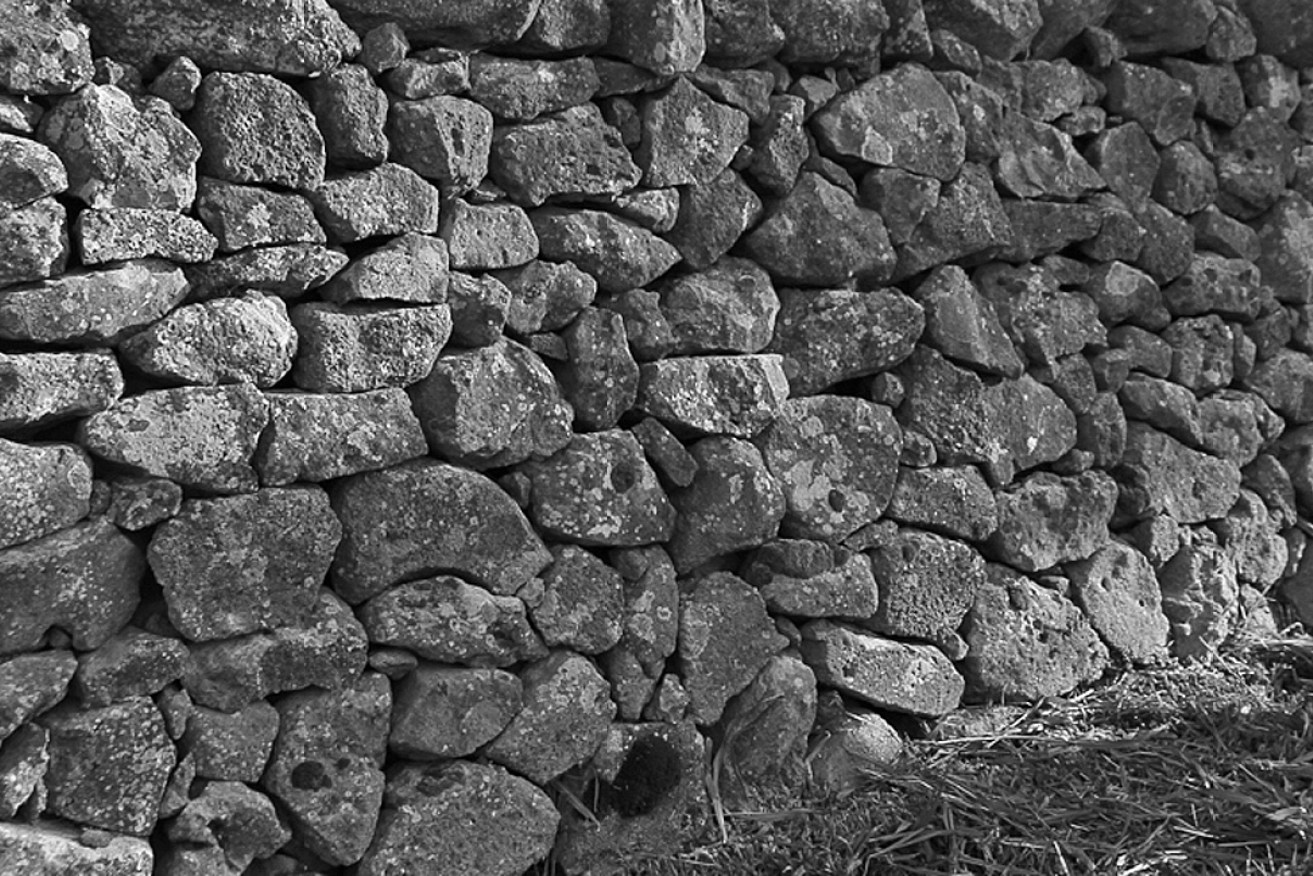Poem: Dry-Stone Walls
In today’s Poet’s Corner, Pat Lee looks at an historic South Australian feature that is a reminder of the lives of the early settlers.

Dry-Stone Walls
East Mount Lofty Ranges
From the richly green Barossa
over hill tops down to the plain,
flat across straw-gold stubble,
past gnarled and wiry pepper trees
flanking ruins among low rocks,
to the graveyard at Towitta
where the early settlers lie:
here the dust wind blows un-fettered,
through thin and drooping sheoaks,
past struggling stands of gangly gums,
blows toward once mighty Murray as it idles to its end.
Stop. Now, look back toward the ranges.
Parallel with road just travelled
see again the dry-stone walls¹,
built by mothers and their children
during mid 1860s drought:
kept food in their bellies,
paid on completion, chain by chain².
Hear their voices on the dust wind,
their weary sighs and sometimes singing
carried as the dust wind blows …
Today along empty streets of Sedan and Towittta,
in the silent playground of Pine Hut Creek School,
decades of dust wind; only sighs, no singing,
season after season, years of scant rain.
Dashed hopes now caught
in spiralling spouts of straw and dust
rising toward the sky’s unremitting blue,
for ever as the dust wind blows …
1: Dry-stone: historic method of stonework construction without any binding media such as mortar.
2: Chain: old unit of length equal to 66 feet or just over 20 metres. (The traditional length of a cricket pitch.)
Pat Lee, following retirement from teaching in 2011, turned to her poems and other “drafts of a lifetime” that she had kept in an old munitions box. With that work, she joined Friendly Street Poets in 2012, and was first published in its annual Reader the next year. Her poems have subsequently appeared in further Friendly Street Readers and other publications both here and in New Zealand. With Parkinson’s disease, Lee was a 2014 recipient of an Arts SA Richard Llewellyn Arts & Disability Emerging Artist Grant. Her first published collection, ‘Nudge the Morning’, was launched in April this year.




